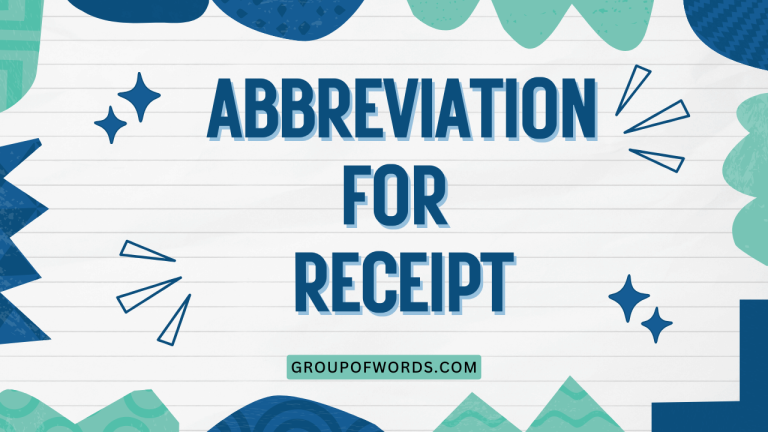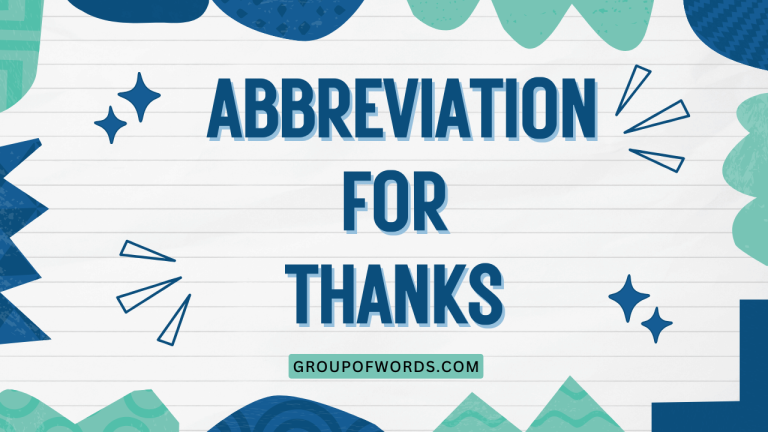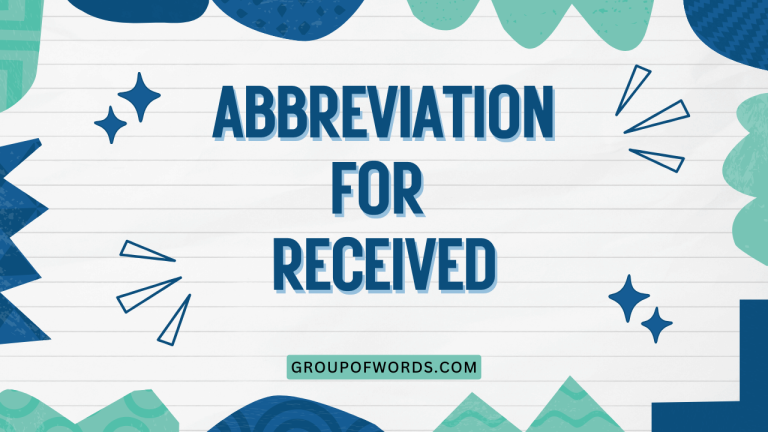WTV: Understanding the Meaning, Usage, and Examples
In the ever-evolving landscape of online communication, acronyms and abbreviations have become integral parts of our digital vocabulary. Among these, “WTF” stands out as a versatile and frequently used expression.
Understanding its meaning, appropriate usage, and potential implications is crucial for effective and respectful communication in various contexts. This article delves into the depths of “WTF,” exploring its definition, structural components, diverse applications, and practical guidelines for its use.
Whether you are a seasoned internet user or a newcomer to the world of online slang, this comprehensive guide will equip you with the knowledge to navigate the nuances of “WTF” with confidence and clarity.
Table of Contents
- Introduction
- Definition of WTV
- Structural Breakdown
- Types and Categories of WTV Usage
- Examples of WTV in Use
- Usage Rules for WTV
- Common Mistakes When Using WTV
- Practice Exercises
- Advanced Topics
- Frequently Asked Questions
- Conclusion
Definition of WTV
“WTV” is an internet abbreviation that stands for “whatever.” It is primarily used in informal online communication, such as text messages, social media posts, and online forums. The term conveys a range of meanings, from agreement and acceptance to indifference, dismissal, or even mild annoyance, depending on the context and tone of the conversation.
Etymology and Origins
The abbreviation “WTV” emerged as part of the broader trend of internet slang and acronyms that gained popularity with the rise of online communication platforms. It is a direct abbreviation of the word “whatever,” which itself has been used in spoken English for centuries to express indifference or dismissal.
The shortened form “WTV” provides a quicker and more concise way to convey the same sentiment in digital interactions.
Core Meaning and Interpretation
At its core, “WTV” communicates a sense of disinterest or lack of concern. However, the specific nuance of its meaning can vary significantly based on the surrounding context, the speaker’s tone, and the relationship between the individuals involved in the conversation.
It can signal simple acceptance, a dismissive attitude, or even a hint of irritation.
Contexts of Use
“WTV” finds its place in various informal communication settings. You’ll often see it in text messages between friends, casual social media comments, and online gaming chats.
Its use in professional or formal contexts is generally discouraged due to its informal and potentially dismissive nature. Understanding the context is critical to interpreting the intended meaning behind the abbreviation.
Structural Breakdown
“WTV” is a simple abbreviation consisting of three letters, each representing the first letter of the corresponding word in the phrase “whatever.” There are no variations in its spelling or structure. Its simplicity contributes to its ease of use and widespread adoption in online communication.
However, the interpretation of “WTV” relies heavily on non-verbal cues such as tone and context, which are often absent in written communication. This can lead to potential misunderstandings if the recipient misinterprets the intended meaning.
Types and Categories of WTV Usage
While “WTV” is a single abbreviation, its usage can be categorized into several distinct types based on the intended meaning and emotional tone.
Agreement and Acceptance
In some cases, “WTV” can be used to express a reluctant agreement or acceptance of a situation. This usage implies that the speaker may not be entirely enthusiastic about the outcome but is willing to go along with it nonetheless.
It often conveys a sense of resignation or compromise.
Indifference and Disinterest
The most common usage of “WTV” is to express indifference or a lack of interest in a particular topic or suggestion. This usage signals that the speaker does not care about the outcome and is not invested in the conversation.
It can be used to shut down further discussion or to indicate that the speaker has no opinion on the matter.
Avoidance and Dismissal
“WTV” can also be used as a way to avoid or dismiss a topic that the speaker finds uncomfortable, boring, or irrelevant. This usage is often intended to change the subject or to signal that the speaker does not want to engage in further discussion.
It can be perceived as rude or dismissive, especially if used in response to a serious or heartfelt statement.
Mild Annoyance
In certain contexts, “WTV” can express mild annoyance or frustration. This usage implies that the speaker is slightly irritated by the situation or the other person’s behavior but is not willing to engage in a full-blown argument.
It can be used as a passive-aggressive way to express dissatisfaction.
Examples of WTV in Use
To illustrate the various ways “WTV” can be used, here are several examples categorized by the type of meaning conveyed.
Agreement and Acceptance Examples
The following table illustrates how “WTV” can be used to convey agreement or acceptance, often with a hint of reluctance or resignation.
| Scenario | Example Sentence | Explanation |
|---|---|---|
| Planning a movie night, and no one can agree. | “Fine, we can watch your movie, WTV.” | Reluctant agreement to watch the other person’s choice. |
| Being asked to do an extra chore. | “WTV, I’ll do it later.” | Acceptance of the chore, but with a lack of enthusiasm. |
| Friend suggesting a restaurant you don’t like. | “WTV, let’s just go there.” | Agreement to go to the restaurant despite personal preference. |
| Being told to follow a certain route while driving. | “WTV, you can navigate.” | Accepting the other person’s navigation, even if unsure. |
| Having to change plans due to unforeseen circumstances. | “WTV, we can do that instead.” | Accepting the change of plans with resignation. |
| Responding to a suggestion you find unappealing. | “WTV, if that’s what you want.” | Agreement with a tone of indifference. |
| When someone insists on a particular course of action. | “WTV, do what you think is best.” | Reluctant agreement to let the other person decide. |
| Accepting a less-than-ideal outcome. | “WTV, it could have been worse.” | Acceptance of a negative situation with a silver lining. |
| Agreeing to a compromise after an argument. | “WTV, let’s just drop it.” | Acceptance of a compromise to end the argument. |
| When you are too tired to argue. | “WTV, I’m going to bed.” | Agreement to end the discussion due to exhaustion. |
| Being asked to help with a task you don’t enjoy. | “WTV, I guess I can help.” | Acceptance of the task with a lack of enthusiasm. |
| When someone makes a decision you disagree with. | “WTV, it’s your choice.” | Reluctant agreement to let the other person make their own decision. |
| Having to accept a change in plans at the last minute. | “WTV, we’ll figure it out.” | Acceptance of the change with a sense of problem-solving. |
| When someone is being stubborn and you give in. | “WTV, have it your way.” | Reluctant agreement to let the other person have their way. |
| Accepting a suggestion you find slightly annoying. | “WTV, if it makes you happy.” | Agreement with a hint of mild annoyance. |
| Agreeing to watch a show you don’t like. | “WTV, I’ll give it a try.” | Acceptance of watching the show with a lack of enthusiasm. |
| When you have no other choice but to agree. | “WTV, it is what it is.” | Acceptance of the situation with a sense of resignation. |
| Agreeing to participate in an activity you find boring. | “WTV, at least we’ll be together.” | Acceptance of the activity with a focus on companionship. |
| When you are too tired to argue and just give in. | “WTV, fine, you win.” | Agreement to end the argument and let the other person win. |
| Being asked to do something you really don’t want to do. | “WTV, just this once.” | Acceptance of the task with a sense of reluctance. |
| When you have to accept a decision you disagree with. | “WTV, I hope it works out.” | Reluctant agreement to accept the decision. |
| Accepting a situation you can’t change. | “WTV, let’s make the best of it.” | Acceptance with a positive attitude. |
| When someone suggests something you think is silly. | “WTV, if you think it will help.” | Agreement with a tone of skepticism. |
| Agreeing to a last-minute change of plans. | “WTV, I’m flexible.” | Acceptance with a flexible attitude. |
Indifference and Disinterest Examples
This table demonstrates the use of “WTV” to express indifference or a lack of interest, signaling that the speaker doesn’t care about the topic at hand.
| Scenario | Example Sentence | Explanation |
|---|---|---|
| Someone asking your opinion on a trivial matter. | “WTV, I don’t really care.” | Expressing a lack of interest in the topic. |
| Being told about someone else’s drama. | “WTV, not my problem.” | Indicating that you are not invested in the situation. |
| Responding to a suggestion you find uninteresting. | “WTV, I’m not really feeling it.” | Expressing a lack of enthusiasm for the suggestion. |
| When someone is rambling about something unimportant. | “WTV, I’m just going to zone out.” | Signaling that you are not paying attention. |
| Being asked to choose between two equally unappealing options. | “WTV, either one is fine.” | Expressing indifference to the choice. |
| When someone is trying to start an argument. | “WTV, I’m not getting involved.” | Indicating that you are not interested in arguing. |
| Responding to a complaint you find trivial. | “WTV, it’s not a big deal.” | Minimizing the importance of the complaint. |
| When someone is gossiping about someone else. | “WTV, I don’t really care about that.” | Signaling a lack of interest in gossip. |
| Being asked to make a decision you don’t care about. | “WTV, just decide for me.” | Expressing indifference and delegating the decision. |
| When someone is bragging about something unimportant. | “WTV, good for you.” | Dismissing the bragging with indifference. |
| Responding to a question you don’t have an answer to. | “WTV, I have no idea.” | Expressing a lack of knowledge and indifference. |
| When someone is complaining about something trivial. | “WTV, get over it.” | Dismissing the complaint with indifference. |
| Being asked to participate in an activity you dislike. | “WTV, I’ll just sit this one out.” | Expressing a lack of interest in participating. |
| When someone is trying to impress you with something. | “WTV, not really impressed.” | Signaling that you are not impressed. |
| Responding to a suggestion you find uninteresting. | “WTV, sounds boring.” | Expressing a lack of enthusiasm for the suggestion. |
| When someone is trying to get your attention with something trivial. | “WTV, I’m busy.” | Signaling that you are not interested in their attention. |
| Being asked to choose between two equally appealing options. | “WTV, I like both.” | Expressing indifference to the choice because you like both options. |
| When someone is trying to provoke you. | “WTV, not falling for it.” | Signaling that you are not going to be provoked. |
| Responding to a comment you find irrelevant. | “WTV, moving on.” | Dismissing the comment and changing the subject. |
| When someone is trying to start a debate. | “WTV, I’m not debating.” | Indicating that you are not interested in debating. |
| Being asked to give an opinion on something you don’t care about. | “WTV, I don’t have an opinion.” | Expressing a lack of opinion and indifference. |
| When someone is trying to get you to do something you don’t want to do. | “WTV, not happening.” | Signaling that you are not going to do it. |
| Responding to a statement you find insignificant. | “WTV, so what?” | Minimizing the importance of the statement. |
| When someone is trying to involve you in their problems. | “WTV, deal with it.” | Signaling that you are not interested in helping them. |
| Being asked to choose between two things you dislike. | “WTV, I hate both.” | Expressing indifference because you dislike both options. |
Avoidance and Dismissal Examples
This table showcases how “WTV” can be employed to avoid a topic or dismiss a statement, often indicating discomfort or a desire to change the subject.
| Scenario | Example Sentence | Explanation |
|---|---|---|
| Being asked about a sensitive personal topic. | “WTV, let’s talk about something else.” | Avoiding the topic by changing the subject. |
| When someone brings up an embarrassing moment. | “WTV, that was ages ago.” | Dismissing the topic as irrelevant. |
| Responding to a question you don’t want to answer. | “WTV, I don’t remember.” | Avoiding the question by feigning ignorance. |
| When someone is being overly critical. | “WTV, I’m done with this conversation.” | Dismissing the criticism and ending the conversation. |
| Being asked to take sides in a conflict. | “WTV, I’m staying out of it.” | Avoiding involvement in the conflict. |
| When someone is trying to guilt-trip you. | “WTV, not falling for that.” | Dismissing the guilt-trip attempt. |
| Responding to a request you don’t want to fulfill. | “WTV, I’m busy right now.” | Avoiding the request by claiming to be busy. |
| When someone is being overly dramatic. | “WTV, I’m not dealing with this.” | Dismissing the drama and disengaging. |
| Being asked about a future commitment you’re unsure about. | “WTV, I’ll think about it.” | Avoiding the commitment by postponing the decision. |
| When someone is being overly negative. | “WTV, I’m going to stay positive.” | Dismissing the negativity and focusing on positivity. |
| Responding to a suggestion you find impractical. | “WTV, that’s not going to work.” | Dismissing the suggestion as unrealistic. |
| When someone is trying to control you. | “WTV, I’m doing my own thing.” | Dismissing the attempt to control you. |
| Being asked to justify your actions. | “WTV, I don’t need to explain myself.” | Avoiding the need to justify your actions. |
| When someone is being condescending. | “WTV, I’m not listening to this.” | Dismissing the condescending behavior. |
| Responding to a statement you find offensive. | “WTV, I’m not going to dignify that with a response.” | Avoiding the offensive statement by refusing to respond. |
| When someone is trying to manipulate you. | “WTV, I see what you’re doing.” | Dismissing the manipulation attempt. |
| Being asked about a past mistake. | “WTV, I’ve moved on.” | Dismissing the past mistake as irrelevant. |
| When someone is being overly persistent. | “WTV, I’ve already said no.” | Dismissing the persistence by reiterating your refusal. |
| Responding to a comment you find annoying. | “WTV, I’m ignoring you.” | Dismissing the annoying comment by ignoring the person. |
| When someone is trying to start a fight. | “WTV, I’m walking away.” | Avoiding the fight by leaving the situation. |
| Being asked to do something you find unethical. | “WTV, I’m not doing that.” | Dismissing the unethical request. |
| When someone is trying to make you feel bad. | “WTV, I’m not letting you get to me.” | Dismissing the attempt to make you feel bad. |
| Responding to a question that is too personal. | “WTV, that’s none of your business.” | Avoiding the question by setting boundaries. |
| When someone is being overly critical of your choices. | “WTV, I’m happy with my decisions.” | Dismissing the criticism and affirming your satisfaction. |
Mild Annoyance Examples
The examples in this table illustrate how “WTV” can express mild annoyance or frustration, often in a passive-aggressive manner.
| Scenario | Example Sentence | Explanation |
|---|---|---|
| When someone is being slow to respond. | “Finally! WTV.” | Expressing annoyance at the delay. |
| Being interrupted while trying to focus. | “WTV, I lost my train of thought.” | Expressing annoyance at the interruption. |
| When someone is making a lot of noise. | “WTV, can you be a little quieter?” | Expressing annoyance at the noise level. |
| Being asked to repeat yourself multiple times. | “WTV, never mind.” | Expressing annoyance at having to repeat yourself. |
| When someone is being inconsiderate. | “WTV, I guess I’ll just do it myself.” | Expressing annoyance at the lack of consideration. |
| Being given vague instructions. | “WTV, I’ll figure it out.” | Expressing annoyance at the lack of clarity. |
| When someone is constantly complaining. | “WTV, try to be more positive.” | Expressing annoyance at the constant complaining. |
| Being asked to do something at the last minute. | “WTV, I’ll try to squeeze it in.” | Expressing annoyance at the last-minute request. |
| When someone is being overly demanding. | “WTV, I have other things to do.” | Expressing annoyance at the demanding behavior. |
| Being asked to explain something obvious. | “WTV, it’s pretty self-explanatory.” | Expressing annoyance at the need to explain the obvious. |
| When someone is being overly sensitive. | “WTV, I didn’t mean anything by it.” | Expressing annoyance at the oversensitivity. |
| Being asked to do something you’ve already done. | “WTV, I already took care of it.” | Expressing annoyance at being asked to do something already done. |
| When someone is being overly critical of your work. | “WTV, I did my best.” | Expressing annoyance at the criticism. |
| Being asked to make a compromise you don’t agree with. | “WTV, fine, we’ll do it your way.” | Expressing annoyance at having to compromise. |
| When someone is being overly dramatic about a small problem. | “WTV, it’s not the end of the world.” | Expressing annoyance at the overreaction. |
| Being asked to take responsibility for someone else’s mistake. | “WTV, I’ll clean up the mess.” | Expressing annoyance at having to take responsibility. |
| When someone is being overly intrusive. | “WTV, give me some space.” | Expressing annoyance at the lack of personal space. |
| Being asked to do something you find unpleasant. | “WTV, I’ll get it over with.” | Expressing annoyance at having to do the unpleasant task. |
| When someone is being overly pessimistic. | “WTV, try to look on the bright side.” | Expressing annoyance at the pessimism. |
| Being asked to do something you find demeaning. | “WTV, I’ll do it this time.” | Expressing annoyance at the demeaning request. |
| When someone is being overly nosy about your personal life. | “WTV, it’s private.” | Expressing annoyance at the intrusion into your personal life. |
| Being asked to do something you find time-consuming. | “WTV, I’ll make time for it.” | Expressing annoyance at the time commitment. |
| When someone is being overly demanding of your attention. | “WTV, I need a break.” | Expressing annoyance at the constant demand for attention. |
| Being asked to do something you find pointless. | “WTV, what’s the point?” | Expressing annoyance at the lack of purpose. |
Usage Rules for WTV
While “WTV” is a relatively simple abbreviation, there are several guidelines to consider to ensure its appropriate and effective use.
Formality Considerations
“WTV” is inherently informal and should be avoided in professional or formal communication. Using it in emails to superiors, business presentations, or academic papers would be highly inappropriate.
Stick to using “whatever” or rephrasing your sentence to convey the intended meaning in a more professional manner.
Audience Awareness
Consider your audience before using “WTV.” If you’re unsure whether the recipient will understand or appreciate the abbreviation, it’s best to err on the side of caution and use the full word “whatever.” Additionally, be mindful of the potential for misinterpretation, especially with individuals who are not familiar with internet slang. The relationship you have with the other person also matters.
Using “WTV” with someone you don’t know well could be seen as rude.
Punctuation and Capitalization
Punctuation and capitalization are flexible with “WTV.” You can use it with or without a period at the end. Capitalization is also optional, although lowercase is more common in informal settings.
Consistency in your own usage is preferable. For example, sticking to “WTV” or “wtv” throughout a conversation.
Common Mistakes When Using WTV
Despite its simplicity, “WTV” can be misused, leading to miscommunication or unintended offense.
Misinterpretation of Context
One of the most common mistakes is failing to consider the context in which “WTV” is used. As demonstrated in the examples above, the meaning of “WTV” can vary significantly depending on the surrounding conversation.
Misinterpreting the intended meaning can lead to misunderstandings and hurt feelings.
Overuse and Redundancy
Overusing “WTV” can make you sound dismissive or uninterested in everything. It’s important to use it sparingly and only when it accurately reflects your intended meaning.
Redundancy, such as saying “Okay, WTV,” is unnecessary and can make your communication seem less thoughtful.
Inappropriate Application
Using “WTV” in response to a serious or heartfelt statement is highly inappropriate and can be perceived as rude and insensitive. Avoid using it in situations where empathy and understanding are required.
Correct vs. Incorrect Examples:
| Scenario | Incorrect | Correct |
|---|---|---|
| Responding to a friend sharing their grief. | “WTV, get over it.” | “I’m so sorry to hear that. How can I help?” |
| Accepting a task from your boss. | “WTV, I guess.” | “Okay, I’ll get right on it.” |
| Responding to a suggestion from a colleague. | “WTV, that’s a stupid idea.” | “I’m not sure that’s the best approach. Let’s explore other options.” |
Practice Exercises
Test your understanding of “WTV” with these practice exercises. Identify the most appropriate meaning of “WTV” in each scenario.
| Question | Possible Meanings | Correct Answer |
|---|---|---|
| 1. Friend: “Let’s go to the beach tomorrow.” You: “WTV.” | a) Agreement, b) Indifference, c) Avoidance | a) Agreement |
| 2. Someone is complaining about the weather. You: “WTV.” | a) Agreement, b) Indifference, c) Annoyance | b) Indifference |
| 3. Being asked about a personal relationship. You: “WTV.” | a) Agreement, b) Avoidance, c) Annoyance | b) Avoidance |
| 4. Someone is taking a long time to get ready. You: “WTV, let’s go.” | a) Indifference, b) Avoidance, c) Annoyance | c) Annoyance |
| 5. Being asked to choose between two options you don’t care about. You: “WTV.” | a) Agreement, b) Indifference, c) Avoidance | b) Indifference |
| 6. Someone is trying to start an argument. You: “WTV, I’m not fighting.” | a) Agreement, b) Avoidance, c) Annoyance | b) Avoidance |
| 7. Friend: “I think I’m going to dye my hair green.” You: “WTV.” | a) Agreement, b) Indifference, c) Annoyance | b) Indifference |
| 8. Being asked to do a chore you really don’t want to do. You: “WTV, fine.” | a) Agreement, b) Avoidance, c) Annoyance | a) Agreement |
| 9. Someone is rambling on about something unimportant. You: “WTV, I’m tuning out.” | a) Indifference, b) Avoidance, c) Annoyance | a) Indifference |
| 10. Being asked a question you don’t want to answer. You: “WTV, next question.” | a) Agreement, b) Avoidance, c) Annoyance | b) Avoidance |
Advanced Topics
For advanced learners, understanding the nuances of “WTV” beyond its basic definition can further enhance communication skills.
Regional Variations
While “WTV” is widely used across English-speaking regions, there may be subtle differences in its interpretation or frequency of use. Some regions may prefer alternative abbreviations or expressions to convey similar meanings.
Paying attention to these regional variations can help avoid misunderstandings when communicating with individuals from different areas.
Evolution of Meaning
The meaning and usage of internet slang are constantly evolving. As new trends emerge and online communication patterns change, the connotations of “WTV” may shift over time.
Staying updated on these evolving trends can help ensure that your use of “WTV” remains current and appropriate.
Frequently Asked Questions
Here are some frequently asked questions about “WTV” to further clarify its usage and meaning.
- What
is the difference between “WTV” and “idc”?
Both “WTV” and “IDC” (I don’t care) express indifference, but “WTV” can also convey agreement, dismissal, or mild annoyance, depending on the context. “IDC” is more direct and solely focused on expressing a lack of care.
- Is it okay to use “WTV” in a text message to my boss?
No, it is generally not appropriate to use “WTV” in communication with your boss or in any professional setting. It is too informal and could be perceived as disrespectful.
- How can I tell if someone is using “WTV” to express annoyance?
Pay attention to the context and their tone. If they seem irritated or use it in response to a request, it’s likely they are expressing mild annoyance.
- What are some alternatives to “WTV” that I can use in more formal settings?
Alternatives include “whatever,” “it doesn’t matter,” “I have no preference,” or simply rephrasing your sentence to convey your intended meaning without using slang.
- Is “WTV” considered rude?
It can be, depending on the context and your relationship with the person you’re communicating with. Be mindful of the potential for misinterpretation and use it judiciously.
Conclusion
“WTV” is a versatile abbreviation that can convey a range of meanings, from agreement to indifference to annoyance. Understanding its nuances and appropriate usage is essential for effective communication in informal online settings.
By considering the context, audience, and potential for misinterpretation, you can use “WTV” confidently and avoid unintended offense. As with any form of internet slang, it’s important to stay updated on evolving trends and adapt your usage accordingly to ensure clear and respectful communication.






